This course will provide you with the economics know-how to navigate the current trends shaping 21st century metropolitan economies. It involves applying economics quantitative methods to the study of new and transforming metropolitan areas and their competitive environments.
This program in fact involves a strong involvement and interest for economics and econometrics applied to urban subject (Urban economic, Environmental and Energy Economics, Evaluation of Public policy , Econometrics, Traffic and Transportation systems, Geographical Information System, Big data,... )
The teaching is firmly oriented towards the business world, and relies on a combination of economics theoretical methodology and real-world case studies. The ESCLiP Master’s Program has developed strong links with industrial and academic partners from various related fields, namely electricty, finance, energy, international organizations, transportation and ministries. Institutions and companies partnered with the Program include the City of Paris, EDF and SNCF, to name a few.
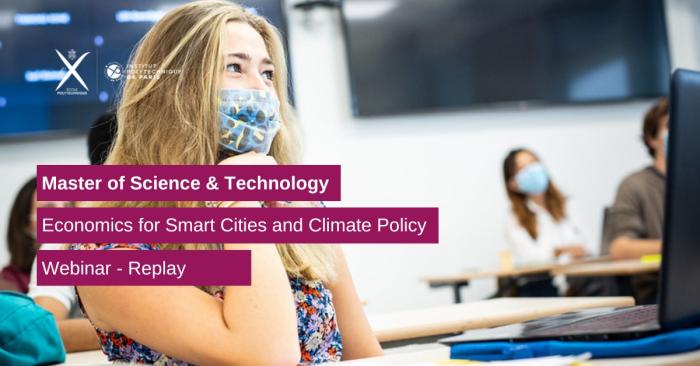
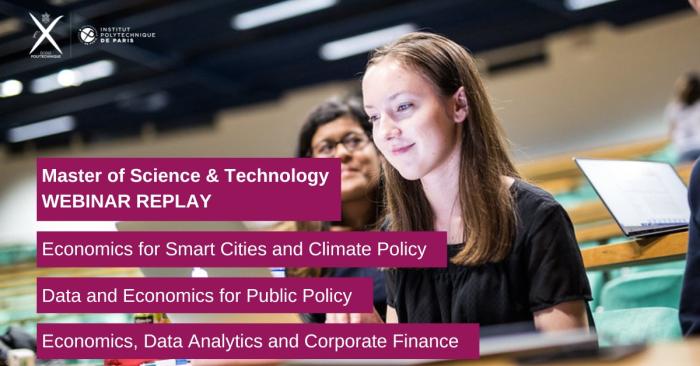
Courses
The Master in Economics for Smart Cities and Climate Policy Program offers both general classes in economics and courses applied to urban contexts and policies in cities.
Throughout the Program, students develop strong economics skills with classes like Economics of Corporate Finance, Industrial Organization, and Corporate and Social Environmental Responsibility.
They also learn to tackle urban economic issues through classes in Environmental Economics and Politics in Cities, Real Estate, Traffic and Transportation Systems, and Local Development Economics, among others.
Internships and Project
The Economics for Smart Cities and Climate Policy Program emphasizes hands-on, experiment-based learning by inviting you into with the worlds of research and industry.
In this context, students complete a four- to six-month internship at the end of each year of the Program, either in France or abroad.
Throughout the two years of the Program, students are also required to complete a research project. They can choose to do a research thesis, or work on a real-world case study called the “Capstone Project”, which is done in collaboration with the city of Paris.
The Capstone Project
The Capstone Project is done over the course of Year 1 and Year 2 and involves evaluating the climate action plan of Paris. Students select one of the areas of the Paris climate and energy action plan (mobility, housing, air quality, sustainable consumption, waste policy, adaptation strategy) and conduct a scientific study to evaluate it in relation to their chosen area.
The ESCLiP Master students address a wide range of thematics, among which:
Projects of 2020
- Plastic reduction
- Electrically-assisted bicycles
- Incentive pricing of waste
- Electric bunkering
- The impacts of the "Bicycle Plan"
- The energetical renovation of buildings
- The Building Information Modelling
- Compensate the biodiversity in a hyper-dense urban area
- The new contaminants: Impact on the top athletes
The Program offers high-level scientific Master’s classes taught by faculty from École Polytechnique, École des Ponts ParisTech, Télécom ParisTech, Mairie de Paris, Université Paris 3, Science Po, Institut Pasteur and other partner institutions and companies (Schneider Electric, Engie and Atos worldgrid among others).
The ESCLiP Master’s Program benefits from École Polytechnique’s multidimensional assets, on the human, technological, social, intellectual and environmental levels. Although the Program is taught by the Economics Department, it has also developed strong interdisciplinary collaborations with the various other teaching departments at l’X.
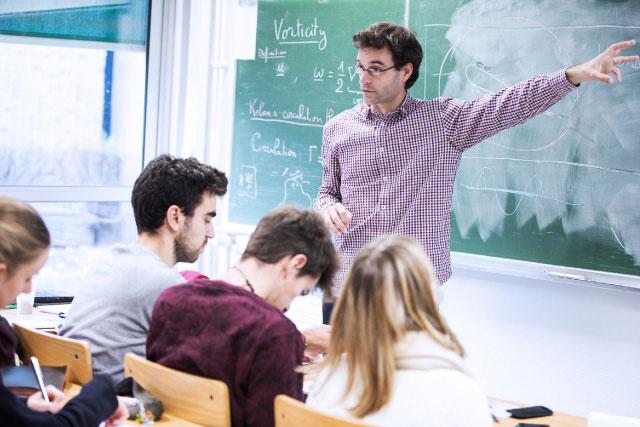
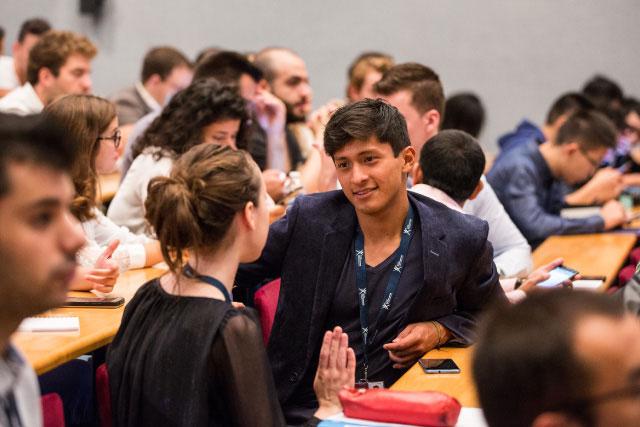
The Economics for Smart Cities and Climate Policy Program is tailored towards students who wish to pursue careers as executives or economic advisors within modern public or private institutions. The Program provides students with the knowledge, skills and experience they need to succeed in their chosen career.
A number of different career paths are available after the degree:
- Managerial positions in various industries, such as transportation, energy, environment, commercial real estate, urban and infrastructure management, and services
- Economic advisory positions in local, regional, governmental and international institutions
- Consultancy positions, making the most of the invaluable market knowledge gained from the Program
- To find out more about the careers guidance provided at École Polytechnique, please visit our dedicated pages.
This program taught me skills I didn’t think I needed to learn, and now I see them as essential. I wanted to work in the urban policy environment, and I didn’t have it in mind that we always need to have an economic view on policies before even treating the administrative and legal aspects, because everything is driven by economics.
“Sustainable Finance and Responsible Investment” Research Chair
The Sustainable Finance and Responsible Investment (Finance Durable et Investissement Responsable) Research Chair was created in 2007 and is co-directed by Sébastien Pouget (Université Toulouse 1 Capitole, IDEI-TSE and IAE) and Patricia Crifo (Department of Economics at École Polytechnique). It is backed by the skills of a highly qualified team of internationally renowned researchers. Read more
Members of the FDIR Chair:
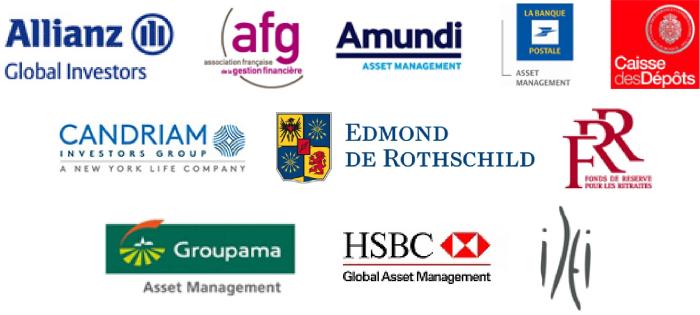
The Energy and Prosperity academic Chair was created in 2015 to inform decisions of public and private actors in managing the energy transition. The Chair research deals with the impacts of energy transition on national economies (growth, employment, debt), on specific sectors (transportation, construction, energy , finance) and with the associated financing issues. Read more
Members and Sponsors of the Energy and Prosperity Chair:
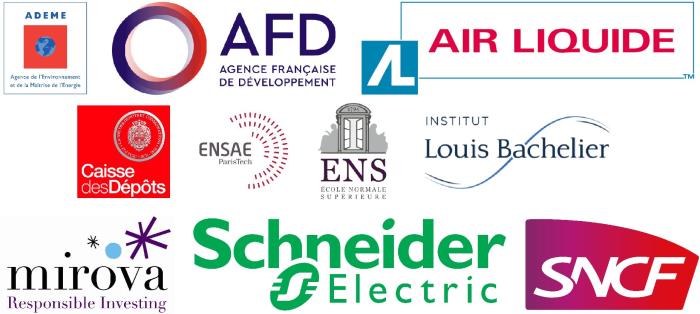

Centre of Energy for Climate (E4C)
With Energy4Climate, IP Paris aims at bringing solutions to the energy transition taking advantage of the expertise of more than 25 partner laboratories and a strong international approach. Energy4Climate is a program that aims to train future leaders of the new energies’ markets.
Discover the E4C Student Challenge.This challenge is designed to give students the opportunity to apply their knowledge and work as a team to develop solutions in response to climate change, one of the greatest challenges of our time.

L’X AND THE CITY OF PARIS UNITE IN THE FIGHT AGAINST CLIMATE CHANGE
On April 17, 2019, École Polytechnique and the City of Paris entered into a partnership to support the city’s Climate Plan. The goal of the partnership is to organize global-scale training and research on the contribution of cities to fight climate change. It also aims to facilitate direct contact between partners, using the creation and mobilization of a global network of researchers and public decision makers.